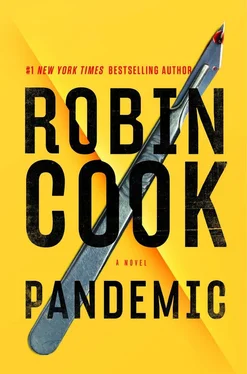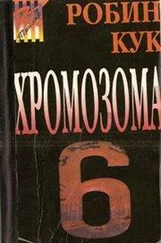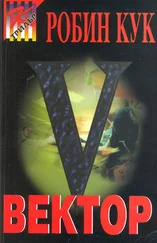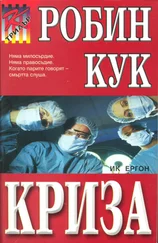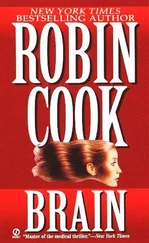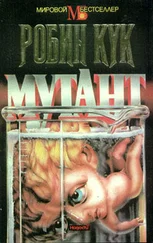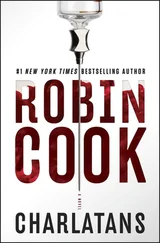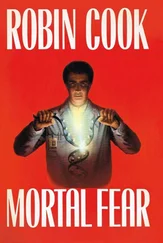David motored past the nearly finished hospital that he knew now had state-of-the-art operating rooms, among its other modern assets. David was well aware that it was his father’s intention to turn the institution into a world-class cancer treatment, gene therapy, in vitro fertilization, and transplant center, all to capitalize on the incredible financial opportunities being opened up by CRISPR/CAS9 technology.
Next to the Dover Valley Hospital, another modern architectural complex loomed. This was his father’s GeneRx company, which was the American equivalent of his similarly named company in Shanghai. Here were the brains of the American operation manned by a large workforce of mostly Chinese biotech engineers and technicians that David’s father had imported, including a considerable bevy of interns coming from all the major biotechnology programs at China’s many universities. Surrounding the spacious complex was a high chain-link, razor-wire-topped fence that angled off into the surrounding forest from both sides of a security booth that stood in the middle of the access road, partially hidden by tall evergreens.
Generally, David would merely drive to the gate and expect it to be raised by the duty officer, but since his car was relatively new, he pulled up to the security booth and lowered the window. He was immediately greeted by one of the guards, who addressed him in Mandarin, welcoming him back to GeneRx.
“Are you heading to the main building?” the guard asked.
“No,” David said. “I’m going to the Farm for a performance.”
The guard laughed, saying it was going to be well attended. He then raised the gate.
Passing the entrance to the multistoried parking lot, David drove around the right side of the main building and into a wooded area. After a few twists and turns, the road opened up into another clearing and another parking area. Beyond it was another matching three-story structure composed of three wings in the form of T ’s with hip roofs that stuck off the back. There was a sign on the front that read FARM INSTITUTE, but David knew that no one called it that. It was known merely as the Farm.
David knew he was a little late, so he quickly found parking and jogged up to the front entrance. Five minutes later he was in the central wing, changing into clean clothing and donning a mask and surgical cap. He was heading into a sterile area that had air flow going only out, similar to a patient isolation room in a hospital. When he was fully decked out and after being checked by a technician to be certain he was adequately covered, David pushed through swinging doors and entered the sterile area. This was the part of the Farm that housed the cloned and sterile pigs whose genomes had been modified by CRISPR/CAS9. There were multiple other areas for various other types of animals, including goats, sheep, cows, monkeys, dogs, mice, rats, and ferrets. The Farm Institute represented a new direction of “farmaceuticals,” with large-molecule, protein-based biopharmaceuticals being manufactured by animals rather than by chemical processes or fermentation vats.
After descending a perfectly white hallway to a door marked INSEMINATION ROOM, David pushed inside. The square room with a central depressed area was occupied by a large, mostly white pig in heat; a tall individual David could tell was the Farm’s head veterinarian; and a handful of his assistants, who were restraining the sow. Grouped around the periphery were some twenty people. David recognized only two, as everyone was in the same getup as he was, their identities obscured beneath face masks, caps, and gowns. The two people he recognized were his father, Wei Zhao, and his father’s man Friday, Kang-Dae Ryang. It was easy to recognize his father because of his unique silhouette. For one thing, his father was tall and commanding, at six feet five inches. David himself wasn’t too far behind, at six-three. But his father’s build was what really stood out, particularly the breadth of his shoulders and the waist that was still remarkably narrow, despite his advancing years. When Wei Zhao was a university student in the seventies, he picked a unique hero, Arnold Schwarzenegger, and became a bodybuilder. Although it had started as a fad, it morphed into a lifelong addiction, and he was still currently doing it in his sixties, albeit in a much-reduced fashion. Kang-Dae’s appearance was the exact opposite, thanks to his pencil-thin frame. His gown appeared as if it were hanging on a wire clothes hanger, and his eyes had a beady look that brought to mind a bird of prey.
David made it a point to sidle up to his father to make sure that his presence had been noted. It had, but he could immediately tell Wei wasn’t happy that David was later than he had been told to arrive. David had done it on purpose, as he derived a modicum of pleasure from his passive-aggressive behavior.
The veterinarian, who was wearing a headlamp, straightened and motioned to Wei with the syringe he was holding that all was ready. A speculum had been inserted by one of his assistants, so presumably the cervical os was visible.
Wei cleared his throat and spoke first in Mandarin and then in English for all to hear. “Welcome, everyone! We’re represented by the whole team, including the CRISPR/CAS9 molecular biologists, the stem-cell experts, the geneticists, the embryologists, and the veterinarians. We’re all here to witness this ‘one small step for man and one giant leap for mankind.’”
There was a little forced laughter at the reference to the United States’ landing on the moon. “As you all know, GeneRx is in great need of an additional revenue stream now that my financing plans for our American operations have been interrupted by Xi Jinping, the Politburo, and the People’s Bank of China, all conspiring to generally restrict capital outflow. I am convinced that what we are doing here today will minimize that problem by helping GeneRx be first out of the gate, so we can corner crucial patents and reap the benefits. As you all know, today we are implanting ten cloned bespoke embryos, and we only need one to succeed to ensure our success. Next week we will do the second implantation to answer our crucial question as to which is better: a chimeric pig or a transgenic pig. Thanks to CRISPR/CAS9, we have a choice. Thank you all for pushing ahead so diligently to make this day happen. This will be the first immunologically custom-designed pig. I’m totally confident it will soon lead to hundreds and ultimately thousands of such creations.”
After concluding his brief remarks, Wei stepped down into the “pit” to observe firsthand the insemination. Kang-Dae stayed where he was, and David moved next to him. David eyed the man out of the corner of his vision, keeping Wei in sight. He didn’t want his father seeing them talking together. In David’s estimation, Kang-Dae couldn’t have weighed more than eighty pounds, or a bit more than thirty-six kilograms. David attributed the man’s rawboned frame to his having grown up in North Korea and been starved as a child. Although he had managed to defect to China thirty-eight years ago, he’d never gained the weight he would have had he not been severely malnourished when young. David had known Kang-Dae for as long as he could remember, as Kang-Dae had been sent by the Communist Party to work for Wei in Wei’s very first biotech company, where he proved to be a tireless and totally dedicated worker. He’d even taught himself biology and biotech. Devoid of a family, he ended up living in a tiny room in Wei’s home despite Wei’s knowing he was essentially a spy. As a consequence of proximity, David and Kang-Dae had become close and remained so, particularly after they both unexpectedly and somewhat unhappily ended up in the United States. There, in New Jersey, they learned that they shared a wish for Wei’s American enterprise to fail so they could all return to China.
Читать дальше
